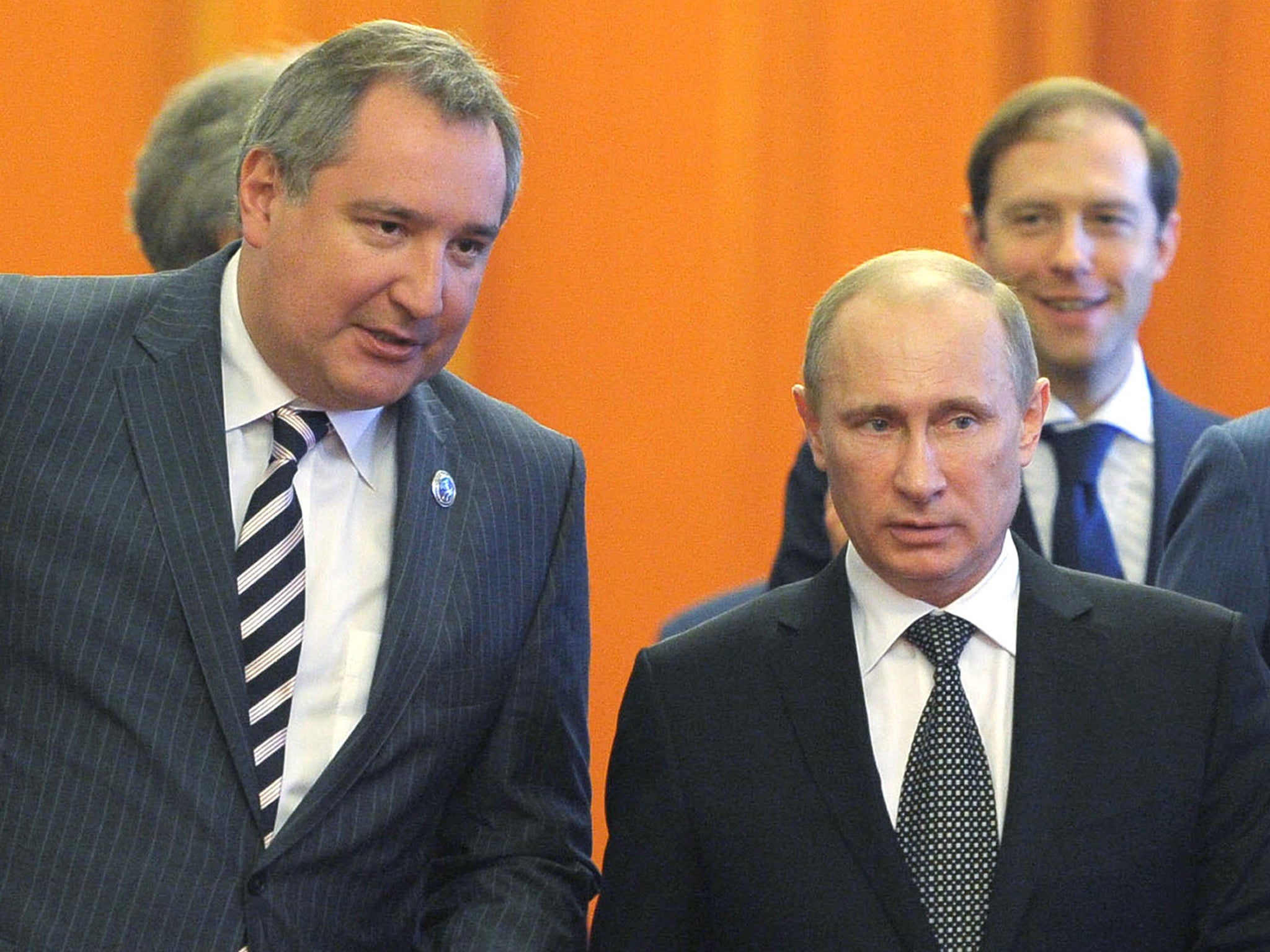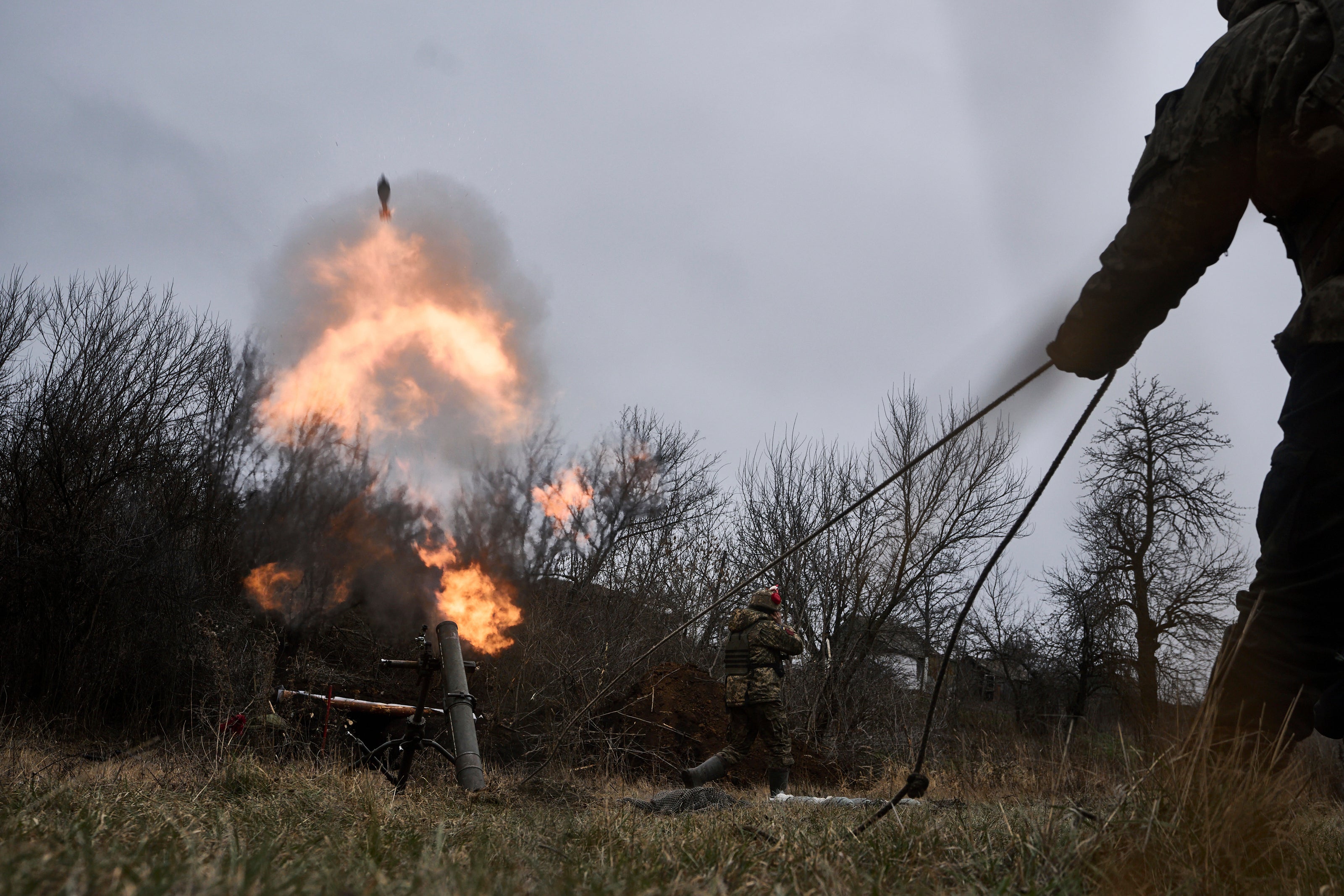Russia’s former deputy prime minister injured in shelling of Ukraine hotel
Dmitry Rogozin was advising Kremlin-backed troops in occupied region, Russian media says
Your support helps us to tell the story
From reproductive rights to climate change to Big Tech, The Independent is on the ground when the story is developing. Whether it's investigating the financials of Elon Musk's pro-Trump PAC or producing our latest documentary, 'The A Word', which shines a light on the American women fighting for reproductive rights, we know how important it is to parse out the facts from the messaging.
At such a critical moment in US history, we need reporters on the ground. Your donation allows us to keep sending journalists to speak to both sides of the story.
The Independent is trusted by Americans across the entire political spectrum. And unlike many other quality news outlets, we choose not to lock Americans out of our reporting and analysis with paywalls. We believe quality journalism should be available to everyone, paid for by those who can afford it.
Your support makes all the difference.A former Russian deputy prime minister was injured in a Ukrainian attack on Donetsk on Wednesday, Russian news agencies reported.
Dmitry Rogozin, who has been giving military advice to two occupied regions of Ukraine which Russia has claimed as its territory, was hurt but his life was not in danger, the state-owned Tass agency reported, quoting an aide of Vladimir Putin’s former second-in-command.
Also hurt was Vitaly Khotsenko, the head of government of the self-proclaimed Donetsk People’s Republic, his press secretary was reported as saying.
Donetsk, an eastern Ukrainian region controlled by pro-Moscow troops, is in the industrial Donbas region and has been host to recent bitter fighting between Russia and Ukraine.
The two men were injured when a hotel on the outskirts of the region’s namesake capital city came under fire from high-precision weapons, aides told Russian agencies. A Russian parliamentarian who was also at the hotel suggested the attackers had acted on a tip.
Mr Rogozin used to head Russia’s space agency but was replaced in July. He had taken a confrontational stance since the agency was hit with sanctions for its role in the defence industry.
In the early 2000s, Mr Rogozin led a nationalist party, winning notoriety for his anti-migrant stance, and later served as Moscow’s envoy to Nato. In 2011, he was named a deputy prime minister in charge of weapons industries and space, a job he held before Mr Putin named him Roscosmos chief in 2018.

He is known for his provocative anti-western remarks. In May, around six weeks after Mr Putin ordered the invasion of Ukraine, Mr Rogozin said Nato countries could be “destroyed” by Russia within half an hour in the event of a nuclear war.
Donetsk has been the scene of the most intense fighting of the war in recent weeks. Russia’s chief of general staff Valery Gerasimov claimed on Thursday that the frontline in Ukraine was stable, and that Russia had concentrated its forces on “completing the liberation” of Donetsk.
In an end of year message delivered to foreign military attaches and published by the defence ministry, Russia’s top military officer said: “The situation on the front line has stabilised, with the main efforts of the Russian troops concentrated on completing the liberation of the territory of the Donetsk People’s Republic.”

Russia has, since its retreat from Kyiv in April, framed its war aims as taking full control of the eastern Donbas region, of which Donetsk region makes up half, alongside neighbouring Luhansk region.
Russian forces control almost all of Luhansk region, but only around 60 per cent of Donetsk region. Since August, they have been bogged down in a costly and extended fight for Bakhmut, a Donetsk region industrial town with a pre-war population of around 70,000.
Ukrainian president Volodymyr Zelensky visited Bakhmut on Tuesday to meet military representatives and hand out awards to soldiers.
Mr Zelensky said on Monday that Bakhmut was the “hottest spot” on an 800-mile frontline.




Join our commenting forum
Join thought-provoking conversations, follow other Independent readers and see their replies
Comments